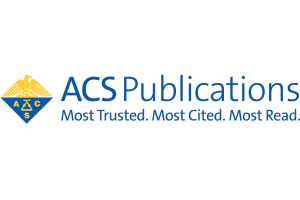Chemistry for Society
Education and Peace through Chemistry –
Contributions to the Progress of Humanity

Zafra M. Lerman
Malta Conferences Foundation
Abstract
Chemistry plays a central role in solving problems affecting society. Currently, widespread conflict, spurred by a deteriorating environment, rapidly expanding populations, unsustainable water and energy supplies, and inadequate educational institutions threaten civilization.
More chemistry students are needed to solve these problems. Alternative methods of teaching, learning and assessing students were developed using art, music, dance and drama which attracted students at all educational levels to chemistry. These methods were proven to be successful around the globe with disadvantaged students. Cross-border collaborations are essential in solving these problems and especially among nations in conflict. Science diplomacy is a tool to catalyze these cross-border collaborations. Science diplomacy can overcome cultural, religious, and political boundaries that other forms of diplomacy cannot. The Malta Conferences Foundation (MCF) has been a pioneer in using science diplomacy as a bridge to peace and sustainable development in the Middle East. MCF uses science diplomacy to advance the following four UN Sustainable Development Goals: 1. Ensure inclusive and quality education for all (Goal 4) 2. Ensure access of Water and Sanitation for all (Goal 6) 3. Ensure access to affordable, reliable, sustainable, and modern Energy for all (Goal 7), and 4. Promote Peace and Justice, as well as inclusive societies (Goal 16). MCF brings together scientists from 15 Middle East countries, Morocco and Pakistan with several Nobel Laureates for five days to form multinational collaborations in order to address these problems, which affect the region and the world. The Malta Conferences have yielded results that are a cornerstone for a bridge to peace and sustainable development in the Middle East, a model which could be implemented in other regions of conflict.
Biography
Zafra Lerman holds a PhD in chemistry from the Weizmann Institute of Science (Israel) and conducted research on isotope effects at Cornell and Northwestern Universities (US) and the ETH (Switzerland). She developed an innovative approach of teaching science using art, music, dance, drama, and computer animation which proved to be successful with disadvantaged students around the world. She worked on human rights cases in the former Soviet Union, Russia, China, Guatemala, Cuba, Peru, South Africa, Iran. She is the President of the Malta Conferences Foundation which brings together scientists from 15 Middle East countries, Morocco, and Pakistan with Nobel Laureates to work for 5 days on establishing cross-border collaborations. She received over 40 international awards, including: Presidential Award from President Clinton, International Conference on Chemistry for Mankind (India) Award for Stimulating Collaborations and Ensuring Human Rights, World Cultural Council José Vasconcelos World Award of Education (South Africa), Nyholm Education Award (England), APS Andrei Sakharov Award, AAAS Science Diplomacy Award, ACS Parsons Award for outstanding public service to society through chemistry, UN NOVUS Summit award for Peace and Justice, and the Distinguished Woman in Chemistry or Chemical Engineering Award from IUPAC. She was nominated in 2018, 2019, 2020, and 2021 for the Nobel Peace Prize by a member of the US Congress and a member of the French parliament.







